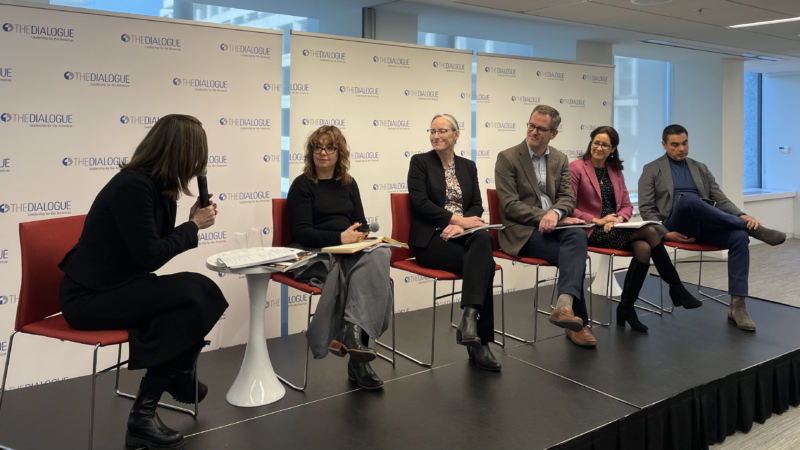The Washington Post & the OAS Secretary General
The OAS needs to be reformed, but the changes need to emerge from accurate analysis of the problems confronting both Latin America and the OAS.
In Latin America, trust in democracy takes two paths: Good Governance, meeting citizens' expectations under the rule of law, and Populism, where a leader perceived as a savior, centralizes power to deliver on promises. This finding was among the key insights revealed during the highly anticipated launch of the 2023 AmericasBarometer report at the event held on November 29, 2023, at the Inter-American Dialogue in collaboration with USAID, LAPOP Lab and Vanderbilt University.
Marcela Escobari, assistant administrator of the Latin American and Caribbean Bureau at USAID, set the stage by acknowledging the two-decade collaboration with LAPOP and Vanderbilt University. She highlighted the survey's pivotal role in measuring perceptions of democracy and trust in institutions, citing its global impact on policymaking and national strategies.
Moving forward to the findings of the 2023 AmericasBarometer, Liz Zechmeister, director at LAPOP Lab and Cornelius Vanderbilt professor of political science at Vanderbilt University, detailed the report's comprehensive approach, spanning 20 years and covering data from 26 countries. Notable among the findings was a nuanced analysis of public attitudes towards democracy, revealing shifting sentiments and acceptance of extra-legal measures. In countries such as El Salvador, the Dominican Republic, Panama, and Honduras, "two out of five individuals found it acceptable for politicians to act outside the law to fulfill promises," she added. Besides the challenges highlighted in the report on institutional erosion and escalating issues like food insecurity and crime victimization, which have contributed to declining trust in institutions, Noam Lupu, associate director at LAPOP and associate professor of political science at Vanderbilt University, underscored two contrasting paths: good governance, meeting citizens' expectations under the rule of law, and populism, characterized by a centralization of power to fulfill promises.
In the ensuing panel discussion, Deborah Ullmer, regional director of Latin America and the Caribbean Programs at the National Democratic Institute, elaborated on the challenges facing democracy in the region, citing instances of authoritarianism, election manipulation, and erosion of trust in institutions in El Salvador, Guatemala and Perú. She noted that "a democracy failing to meet expectations risks losing its legitimacy."
On the perceptions of democracy amid conflict and insecurity, Renata Segura, deputy director of the Latin America and the Caribbean Program at International Crisis Group, questioned whether support for democracy was tied to tangible improvements in security rather than mere political allegiance. For instance, in the case of El Salvador, "we need to determine whether the term democracy is being used merely as a proxy for Bukele or an expression of the system delivering basic security", she highlighted.
About the migration findings on the report, Manuel Orozco, director of the Migration, Remittances and Development at the Dialogue, underscored the intricate relationship between migration and governance, suggesting a correlation between political challenges and heightened levels of migration in countries like El Salvador and Guatemala. "There is a positive correlation between concerns about concentration of power and the likelihood of migration," he noted.
The launch of the 2023 AmericasBarometer report provided a comprehensive overview of democracy in Latin America, offering valuable insights into the region's political landscape and the complex interplay between governance, populism, and public trust.
The OAS needs to be reformed, but the changes need to emerge from accurate analysis of the problems confronting both Latin America and the OAS.
By all accounts, Spain wants to bring change to the European Union’s Cuba policy. In so doing, it is tackling a foreign policy challenge that often sheds more heat than light.
Although politics has cyclical features, and ideology is sometimes a factor in choices made by Latin American voters, the left-right labels obscure more than they illuminate.
 Inter-American Dialogue
Inter-American Dialogue